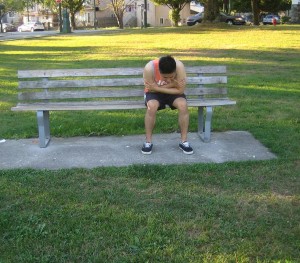A cortical stroke occurs once the blood supply to the outside or cortex of the brain is diminished or blocked which leads to brain damage. It is important to note that the cortex is the chief processing center of the brain which processes sensation, movement and language.
The main risk factors for ending up with a cortical stroke include smoking, high blood pressure and high cholesterol. Individuals who suffered one and caregivers should be familiar with the lasting signs and seek guidance in managing them.
Sensory loss
A long-term sign of a cortical stroke might be permanent sensory loss. This arises since the stroke can impair a region in the cortex that sorts out sensory data from other body parts.

If stroke occurs on one flank of the cortex, it can result to lasting sensory loss on the reverse side of the body. Even though prompt treatment can lessen the seriousness of sensory damage, an individual with stroke might suffer from numbness for his/her entire life depending on the extent of brain damage.
Difficulty with communication
An individual with cortical stroke might have lasting difficulty issues in communicating. Depending on the part of the brain affected, the individual has difficulty in understanding, expressing thoughts, speech or organizing thoughts.
A rehabilitation program is needed for those experiencing ongoing difficulties with communication.
Mobility loss
The individual might lose his/her ability to walk after suffering from a cortical stroke. Remember that this long-term complication generally arises if a region of the cortex affected by the stroke controls motor or muscle movements of the legs.
Additionally, regions of the brain that regulate balance and coordination might be affected. Physical rehabilitation can help the individual regain muscular strength to improve mobility. At certain times, the damage to the brain is too significant to allow the individual to fully recover. An assistive walking device or wheelchair might be needed to improve the mobility of the individual.
Disclaimer / More Information
The information posted on this page on a cortical stroke is for learning and educational purposes only. To learn to recognize the signs, register for first aid training at one of our training centers located throughout Canada. The training centers are in Edmonton, Calgary, Vancouver, Kelowna, Saskatoon, Victoria, Surrey, Mississauga, Winnipeg, Red Deer, Toronto, Ottawa and Halifax.
